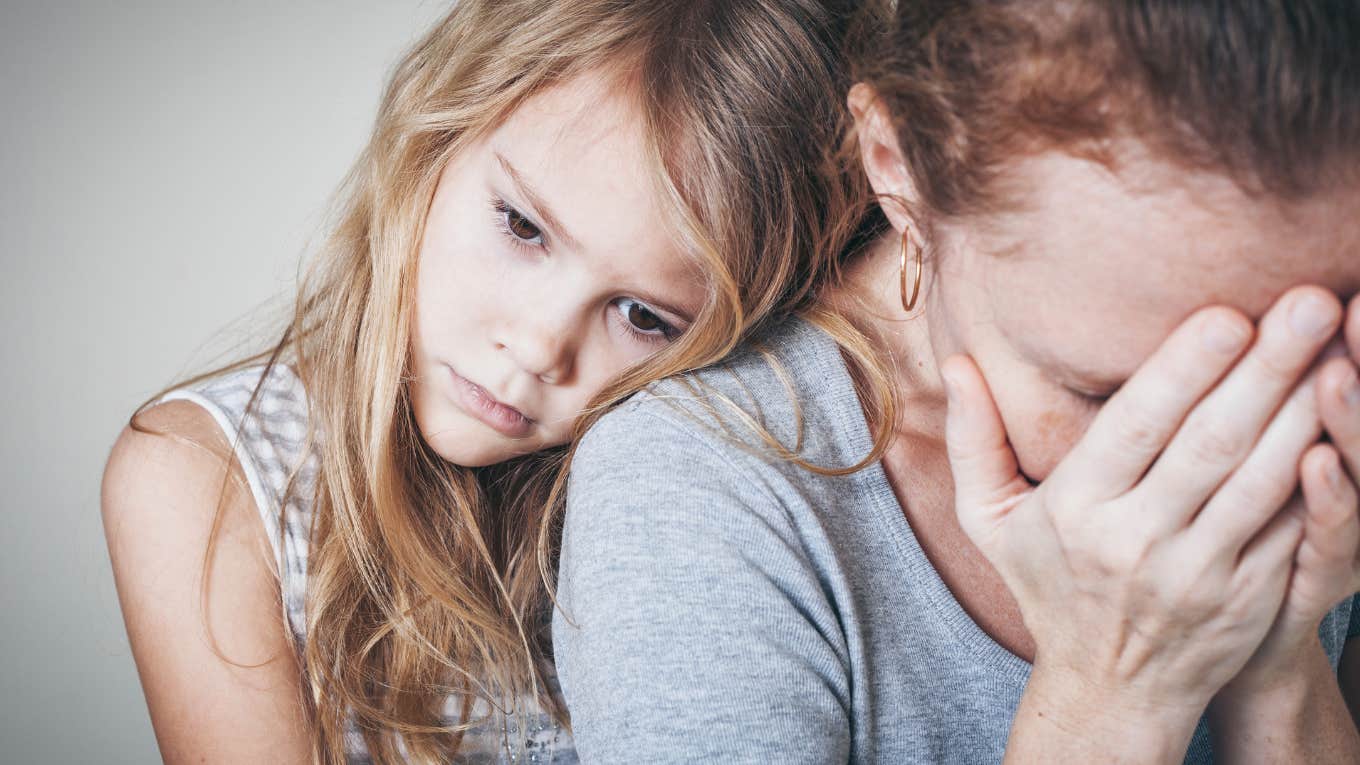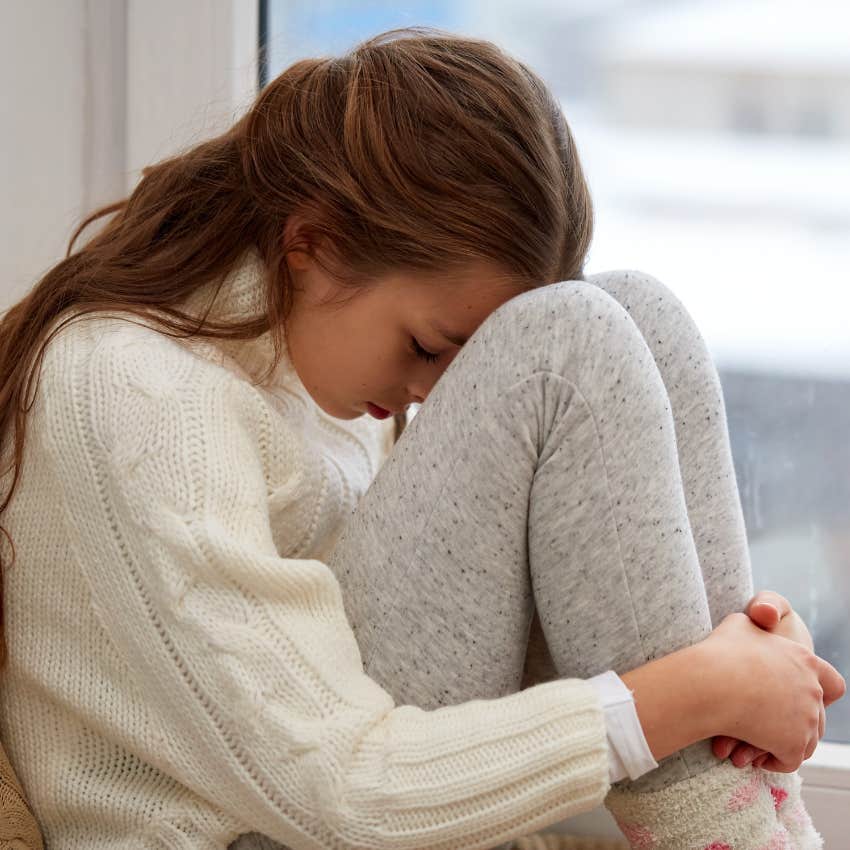Mom Says She Can’t Stand Being Around Her 9-Year-Old Adopted Daughter Because She ‘Despises’ Her Personality
She claimed her daughter is "manipulative" and that the two of them don't get along anymore.
 altanaka / Shutterstock
altanaka / Shutterstock An adoptive mother is being criticized for publicly talking about how much she dislikes her young daughter.
In a TikTok video, an adoption advocate and content creator named Kirsta shared an anonymous message that the adoptive mother wrote on Facebook, claiming that she couldn't stand being around her daughter anymore.
She admitted that she 'despises' her 9-year-old adoptive daughter's personality and can't be around her.
"I can't stand being around my 9-year-old adopted daughter," the unnamed mother began her post.
In response, Kirsta incredulously questioned how so many adoptive parents can spend a wealth of money to adopt a child, but then turn around, viciously hate them, and embarrass them on social media.
The anonymous mother claimed that she used to be incredibly close with her daughter up until she turned 7, and has been in her life since she was born. The adoption happened when she was 5, and she's always been "mom" to her daughter as she married the young girl's biological father.
She admitted that she struggles with some mental health issues, including borderline personality disorder, but is medicated and in therapy.
"I was always told I'd be an awful mom and I think I am," she wrote. "Some days are better than others, and I think it's her personality that I despise. I do feel love for her. I care about her wellbeing and when she's hurt I feel hurt."
However, her biggest issue is her daughter's "hyperactive, loud, and dependent" personality. She argued that her daughter doesn't make the smartest choices and often steals from her family and her father's family. Not taking into consideration that the little girl is only 9, the mother explained that her daughter often lies about the smallest things and refuses to complete simple tasks because one of her parents is asking her.
She accused her daughter of being 'mean' and 'manipulative.'
The anonymous mother expressed her annoyance at the fact that she couldn't even be alone with her husband without her daughter inserting herself between them because she refused to be by herself. When they asked their daughter to leave them alone, she acted out.
"She's been in therapy and seen a psychiatrist who diagnosed her with adjustment disorder with disturbances in mood, behavior, and conduct disorder," the mom said, for which doctors recommended putting the young girl on antipsychotics, but the mother refused and instead wanted the 9-year-old to be put in intensive therapy.
She insisted that all she wants is to be a "good mom" but admitted she's failing. Seemingly looking for empathy and understanding from people, Kirsta didn't give it to her, pointing out that being a good mother doesn't start with bashing your child on the internet for a slew of people to read.
It's possible that this little girl has been through so much change in her life, and doesn't have a healthy way of expressing her emotions.
Her obvious emotional distress is only exacerbated by the knowledge that her adoptive mother doesn't like her and finds an issue just being in her presence.
This mother's long rant is even more of an issue when you look at how often adopted and foster children experience abuse and neglect, both in the system and before they enter it. A study found that among children whose case goal was adoption, 34% had experienced abuse, neglect, or other harmful conditions. Of those children who had recently entered the system, 15% had experienced abuse, neglect, or other harmful conditions in just one year.
Kirsta ended up talking about this point in a follow-up video, after receiving a comment from a viewer who felt that this mother was simply reaching out and asking for help because she cared and wanted to do better for her daughter. In response, Kirsta, who was adopted at birth, disagreed.
"People need to know that those are the mindsets that adoptive parents have over their adopted children," she argued. "You can reach out and ask for help without going into details about how your child specifically bothers you. We both know she would not be talking about her biological child like that."
There is a big difference between parents who genuinely feel overwhelmed by their children and are seeking advice versus parents who are exhibiting harmful behavior in the way they talk about their children.
It's normal for parents, both biological and adoptive, to feel as if they aren't doing their best and failing as parents, but there are also ways to go about solving these problems or asking for help without putting any negative energy onto their children.
This little girl is only 9 years old and clearly doesn't have the tools in her arsenal to express how she's feeling in a healthy way. Instead of being patient and supportive, however, this mother is using harmful language and that's never okay.
 Photo: Syda Productions / Canva Pro
Photo: Syda Productions / Canva Pro
Adoptive parents in particular face unique challenges and should always strive to create a nurturing environment for their children, who are adjusting to changes and just want a constant presence in their lives.
Nia Tipton is a Chicago-based entertainment, news, and lifestyle writer whose work delves into modern-day issues and experiences.

